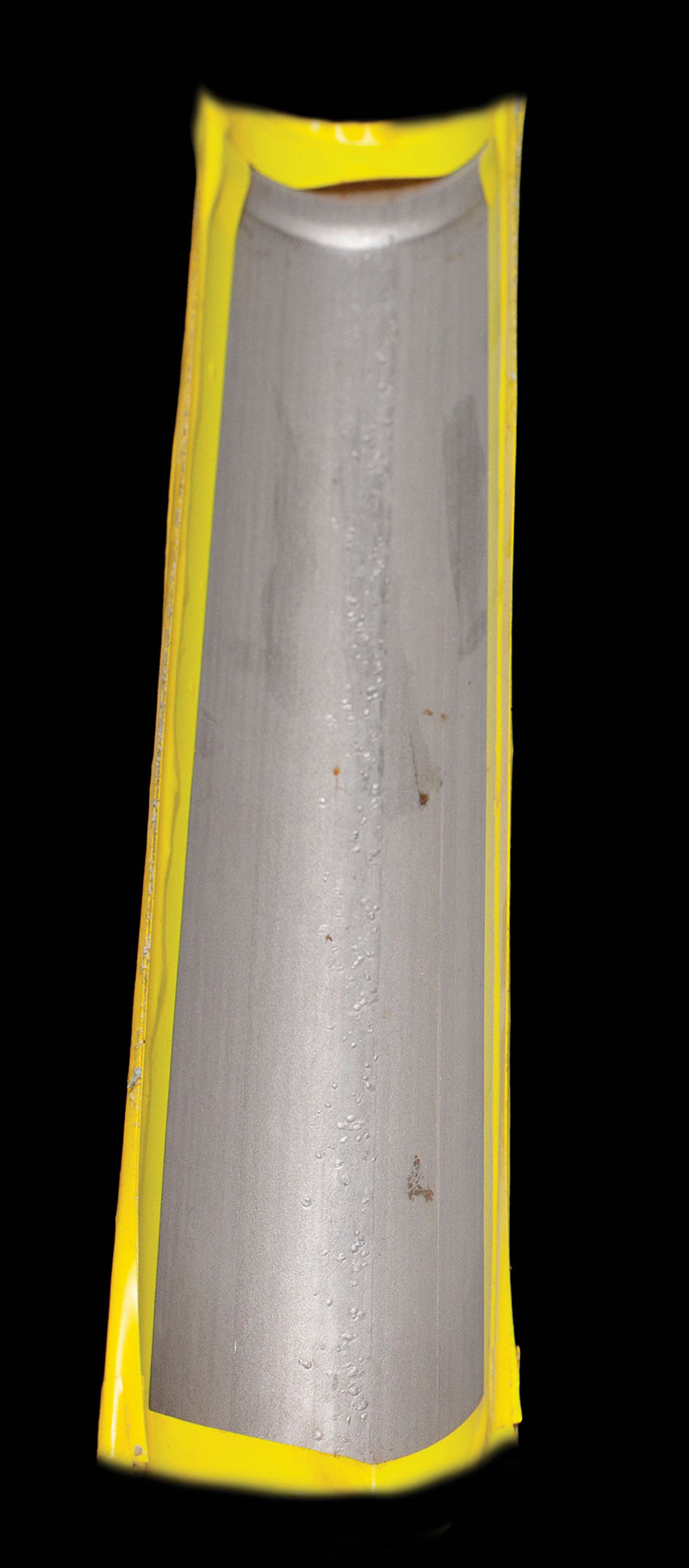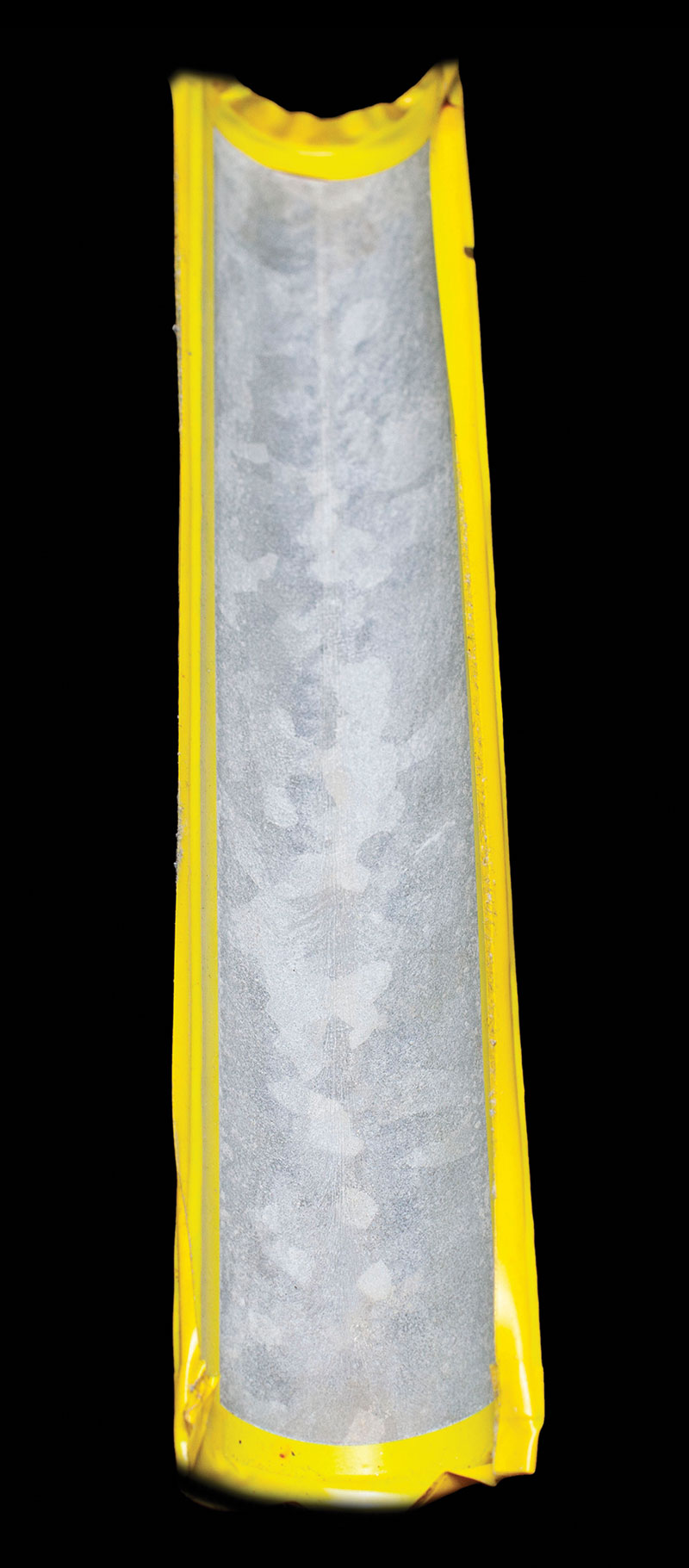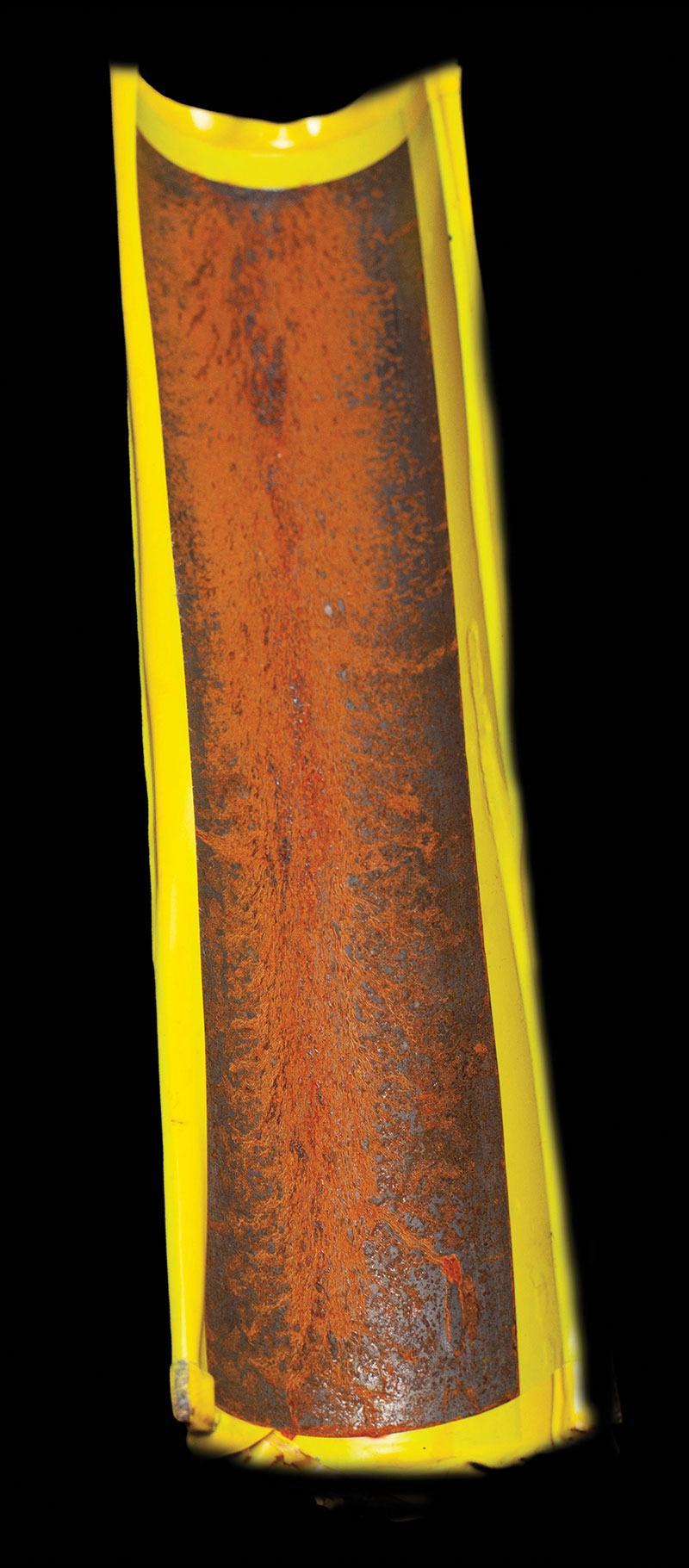modification
rcanum Alloys Inc., a technology-driven company, has created an altered process flow that meets current needs and anticipates future commercial applications. Arcanum Alloys’ proprietary process, called spatially optimized diffusion alloy (SODA), is altering steel processing to serve innovators that demand better performance.
Originally founded in 2011, this Silicon Valley startup moved to Kentwood, Michigan, to expand its team and bring its technology to commercial scale. Arcanum Alloys’ SODA process was developed on 1-square-inch panels in the laboratory but has since scaled to the production of 20-ton coils.
“Our process is disrupting current metallurgical methods and steel manufacturing as we know it. This revolutionary technology possesses the solution for products across many evolving industries,” says Arcanum Alloys’ founder and CEO, Dan Bullard.
Bullard earned a PhD in materials sciences and spent 18 years working for integrated steelmakers, including ArcelorMittal and U.S. Steel Corp., in roles involving laboratory research, process improvement on the manufacturing floor and quality control.
Until now, steel manufacturing has revolved around mass production and margin optimization. Traditionally, sheet steel is produced via a melt phase process, whereby all of the alloying elements required for a given grade of steel are added to the molten steel. This production, designed to produce a homogeneous material, also creates logistical difficulties for high-volume mills because each grade can require different processing parameters on each unit. This ultimately results in large work-in-process inventories.
Additionally, these homogeneous grades do not always provide optimal performance and end users are forced to make trade-offs between the surface properties provided by the steel and its bulk properties. (For materials, bulk properties are defined by grain size and grain size distribution, density and other features.) As an example of a trade-off, the addition of chrome to steel creates a corrosion-resistant, aesthetically pleasing surface. However, it also makes the material work harden much faster than steel without chrome. The high work-hardening rate can increase tooling costs or limit the design flexibility for a given part. Similar trade-offs can be found in electrical steel, where performance improvements are observed in steel grades that have elevated surface concentrations of silicon, cobalt and aluminum.
Through changing the order of operations and exploiting chemical science, Arcanum Alloys is able to mitigate the aforementioned trade-offs. Arcanum Alloys applies a proprietary slurry, a paint-like solution, before the annealing phase, and then sends the steel coil through a cleaning line to remove the non-alloyed slurry remnant.
Through a chemical vapor deposition and diffusion process, SODA decouples surface properties from bulk properties to better tailor the resultant material to customer needs and product enhancement. This process can retain the bulk material properties while still providing alloyed functionality by adding these elements only where they provide value, on the surface. This is not a coating but a metallurgically bonded alloy layer and a true material modification. Arcanum Alloys’ team has tailored these developments to create a technology that is easily integrated into any existing manufacturing infrastructure, ensuring that their products do not require costly capital expenditures to implement.



Arcanum Alloys has two commercialized products, but its breakthrough in steel processing technology is redefining steel standards across a vast number of industries.
The first product, Optiform, is a stainless steel alternative. With applications ranging from appliances to fire suppression, architecture to automotive exhausts, Optiform’s performance is competitive in any stainless sheet market, according to an April 2020 technical paper published by Arcanum and automotive supplier Tenneco Inc. with the Society of Automotive Engineers.
Arcanum Alloys starts with a low-carbon steel coil and then, through the SODA process, diffuses chrome into the surface of the steel, creating a metallurgically bonded alloy. By doing this, Arcanum Alloys can create a more functional, formable and corrosion-resistant product. Unlike other methods, this technology enables the ability to customize elements and boost corrosion resistance.
Optiform typically has 25 percent chrome content at the surface, which offers good corrosion and high-temperature oxidation resistance. Used in appliances, Optiform’s superior formability reduces scrap rates by 10 to 15 percent, which means greater material yield and the ability to develop more complex designs. This increased formability also allows stainless and prepainted parts to be configured on a single production line with no change in settings or tooling.
Most recently Arcanum Alloys’ technology was leveraged by Bull Moose Tube Co. to launch its Hydrologic brand. Using the SODA process, Bull Moose and Arcanum partnered to produce sprinkler pipe. In fire-suppression applications, Optiform far outperformed standard galvanized pipe in corrosion protection, flow rate, life span and cost, according to a recent study (see graphic, Page 33).
Due to an increasing demand for high-quality electrical steels in transportation, Arcanum Alloys is launching its second product, Opticore. Using the SODA technology, Arcanum Alloys has pioneered this high-performance electrical steel with superior induction and low core loss. Initial sheet will come in gauges from 0.01 to 0.002 inch.
By changing the alloy composition, the use of Opticore helps to increase the power density and efficiency of electric motors, ultimately improving motor performance. Opticore also enables the production of high-performance electrical steels without the specialty melt casting and hot-rolling equipment that the standard process requires. Opticore will be available for commercial validation this fall. This breakthrough in electrical steels is expected to contribute to the development of next-generation motor, generator, transformer and other applications.
Arcanum Alloys’ SODA process outperforms standardized methods due to its functionality, corrosion performance and manufacturing flexibility. Bullard and his team pledge that more new products will emerge from Arcanum Alloys’ development pipeline in the near future.